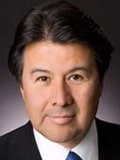
Pete Campos
New Mexico has experienced a dramatic shift in population over the last decade – a shift that will have political implications for the next decade as the Legislature redraws political district boundaries to mirror the population shifts.
Generally speaking, rural New Mexico will lose political representation in Santa Fe while more urban areas – specifically Rio Rancho and the west side of Albuquerque – will gain representation. This will occur either by eliminating districts in rural New Mexico and creating new districts in fast-growing areas or by dramatically shifting existing boundaries toward those fast-growing areas of New Mexico.
The result may be that in the future there will be fewer legislators from rural New Mexico and more from Rio Rancho and Albuquerque’s west side, just as there are fewer people in rural New Mexico and more people in Rio Rancho and on Albuquerque’s west side.
This is not only a necessary adjustment, but also a beneficial one to ensure that New Mexico remains in compliance with the principle of “one person, one vote” – the foundation of our form of government.
The shift is still not easy, however, as residents of rural New Mexico are understandably concerned with this undeniable trend. Over the last decade, only six of New Mexico’s 33 counties grew faster than the state average: Sandoval, Doña Ana, Bernalillo, Lea, Valencia and San Juan. Notably, 14 counties actually lost population, and, in two more counties, population growth was essentially flat.
Contrast that to the previous decade, from 1990-2000, when the state’s growth was more evenly distributed, with nearly half of the state’s counties growing essentially at or faster than the state average and only four counties losing population.
Don’t despair
But residents of rural New Mexico should not despair over the expected loss of political representation, because at the same time we are redrawing political boundaries, the Legislature is working hard to invest in and support our economy, particularly in rural New Mexico.
The Legislature will likely approve two economic development measures during the current special session. The first is a multimillion dollar statewide capital outlay measure that includes funding for construction projects that will immediately create jobs and improve our infrastructure. The second is legislation to ensure that only genuine New Mexico businesses benefit from the 5-percent advantage awarded to in-state bidders on state contracts.
Neither of these issues has received the same attention as more controversial measures, but they are both arguably much more important.
We will not give up on efforts to improve the economy. We realize that New Mexicans are struggling, and we will continue planning through the rest of this interim up to the regular session in January to develop a plan to release additional money that will help us retain and create jobs.
We won’t overlook rural NM
At the same time, we cannot forget that redrawing political boundaries to reflect population shifts to more urban areas of New Mexico will take nothing away from the amenities and advantages of rural New Mexico. We are blessed with oil and natural gas deposits in the north and south. We have wind and solar energy opportunities in the northeast. The continuing expansion of broadband, wireless and cellular access helps provide instant communication through populated and sparsely populated areas alike, linking our families and friends who live and work all over this great state.
Beautiful resort and recreation areas, magnificent panoramic vistas and intriguing destinations are found throughout New Mexico, providing a little of everything from great shopping to amazing entertainment.
Our transportation system is sound, with interstates 40, 25 and 10 and our airports providing the infrastructure to move goods and customers, including tourists, throughout New Mexico.
Too often, we lose sight of what New Mexico, which is still largely a rural state, has to offer. We have a rich history that is ready to be shared with the world, and the Legislature will not overlook rural New Mexico.
Campos is a Democratic state senator from Las Vegas and president of Luna Community College.